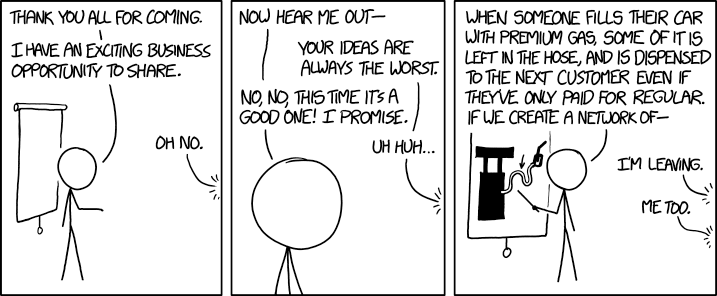from the this-ends-now dept
Could it finally be over? The Winklevoss twins, Cameron and Tyler, along with Divya Narendra, famously sued Mark Zuckerberg, claiming he "stole" the idea of Facebook from them. They eventually
sued him and then
settled, getting (at the time) $65 million in cash and Facebook stock. You may have heard about it, considering there was a big Hollywood movie based loosely on all of this. Of course, the whole concept was
preposterous. There were tons of other social networks at the time, and you can't "steal" an idea. But, in the grand scheme of things, paying off those guys was easier than continuing to fight it. Yet, after the settlement was done, the twins tried to
back out of the settlement, claiming their share should have been much higher. Despite a court shutting them down, the twins
kept fighting. Hopefully, that's now over. Judge Alex Kozinski is
is trying to put an end to the whole thing, saying that the original settlement stands.
The full ruling from Kozinski is, in typical Kozinski fashion, an entertaining read. He points out that the point of the original settlement was so that everyone could "get on with their lives." Kozinski is particularly harsh on the Winklevosses for trying to back out of the agreement over a claim of valuation issues when they clearly knew what they were getting into:
The Winklevosses are sophisticated parties who were
locked in a contentious struggle over ownership rights in one
of the world’s fastest-growing companies. They engaged in
discovery, which gave them access to a good deal of information
about their opponents. They brought half-a-dozen lawyers
to the mediation. Howard Winklevoss--father of
Cameron and Tyler, former accounting professor at Wharton
School of Business and an expert in valuation--also participated.
Kozinski also knocks the Winklevi for being marketplace losers resorting to the courts to sue those who beat them in the market:
The Winklevosses are not the first parties bested by a competitor
who then seek to gain through litigation what they
were unable to achieve in the marketplace. And the courts
might have obliged, had the Winklevosses not settled their
dispute and signed a release of all claims against Facebook.
With the help of a team of lawyers and a financial advisor,
they made a deal that appears quite favorable in light of recent
market activity.
As Kozinski notes, while they've been arguing about all of this, Facebook has continued to appreciate in value, and their "settlement" is now worth much more than they even thought they would get originally. He concludes it simply:
For whatever
reason, they now want to back out. Like the district court, we
see no basis for allowing them to do so. At some point, litigation
must come to an end. That point has now been reached.
And so, they "lose." Of course, it's hard to see how
getting $160 million for totally failing in the marketplace can be considered "losing."
Filed Under: alex kozinski, ideas, winklevoss
Companies: connectu, facebook


